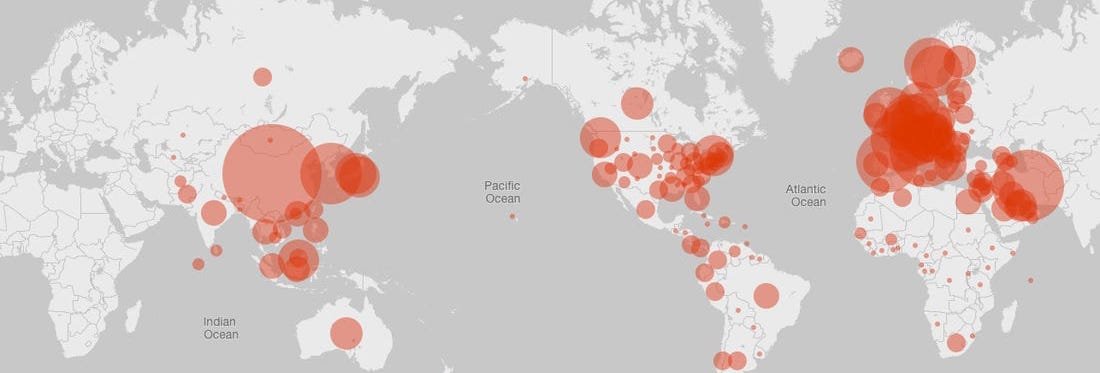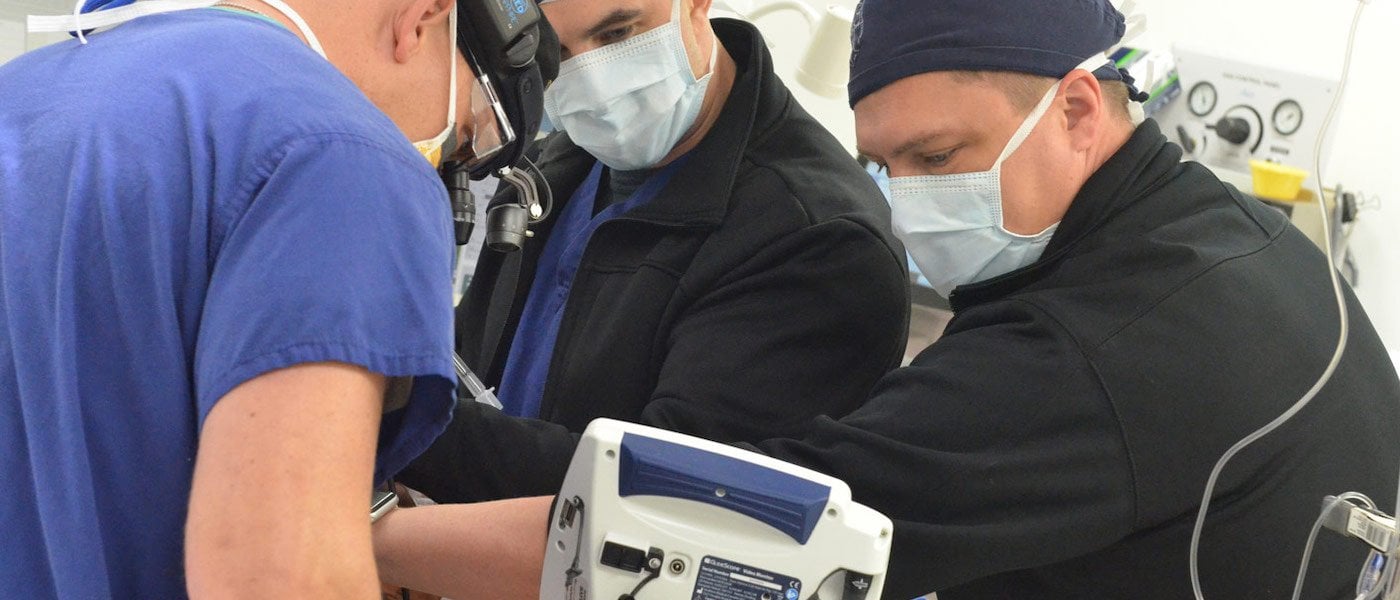he historic pandemic that the world is now facing will certainly have lasting effects, including in our minds: will we have learned to live with more moderation and frugality, while taking more pleasure in the outdoors? Or, on the contrary, will we rush to return to “normal”, with all that entails in terms of stress and excess?
One thing is certain: as in wartime, in the face of adversity, all masks fall off. What actions of mutual aid and solidarity are taking place? Who is doing everything within their means to help, and who is lying low, waiting for it to be over, so that everything can go back to how it was before? Human nature is ambiguous, tormented and paradoxical, and this battle is being fought out within each one of us!
Day after day, large-scale private actions are announced to help combat this global event. By their sheer size, some of them, such as the billion dollars donated by Jack Dorsey, the founder of Twitter, or the tens of millions of masks ordered by LVMH back in March, also shine a spotlight on the failings of states that were ill-prepared for the crisis. As the saying goes, “to govern is to plan ahead.” Private initiatives are increasingly taking over where the state has fallen short.
Human nature is ambiguous, tormented and paradoxical, and this battle is being fought out within each one of us!
This failure of national governments and the intervention of private actors in their place naturally raises major questions about the nature of democratic legitimacy. But the situation is hardly surprising, given an economic system so riven with inequalities that one man, Jeff Bezos, the boss of Amazon, can be richer than a country such as Morocco, with 35 million inhabitants. Or, to take it down to the Swiss level: the ten richest people in the world have more assets than the GDP of the entire Swiss Confederation. With a budget the size of a country, you can act like a nation state... and in times of crisis, this can be welcome, whatever people say.
Now that we’re talking about Switzerland, let’s talk about the watch industry! What actions have been taken, both to help fight the pandemic (what we might call “external” solidarity) and to maintain the industrial fabric (“internal” solidarity, specific to the watchmaking ecosystem)? Here’s an overview of the situation.

External solidarity
Compared to other luxury and “non-essential” industries, the watch industry has not, it must be said, demonstrated much in the way of spontaneous support in the fight against the pandemic. The leather goods, jewellery, perfume and automobile sectors rapidly put in place actions aimed at diverting part of their production from non-essential goods to basic necessities in this time of crisis.
We’re thinking, of course, of the production of masks by Louis Vuitton and hydroalcoholic gel by Bulgari, as well as similar initiatives taken by Chanel and Hermès. In Switzerland, perfume giants Givaudan and Firmenich are producing tons of hand sanitiser, which they are delivering to local hospitals.
In terms of the visible part of the iceberg, watchmakers – be they from Switzerland, Japan or other countries – are not among the most active in the fight against the pandemic, which is likely to leave an indelible mark on our societies.
So far, we have seen no initiatives on a comparable scale from watchmaking companies (or else things have been happening very discreetly, behind the scenes) despite high-quality industrial infrastructure. This has been deplored by our colleague Grégory Pons (BusinessMontres), who has been urging watchmakers for weeks now to show more creativity in this area, for instance by helping with the manufacture of components for respirators. As CNN reported, in less than 100 hours, Mercedes engineers developed a respiratory assistance device. Italian manufacturer Lamborghini is now designing masks and other protective equipment thanks to 3D printing!
There are, nevertheless, a few exceptions in the watch world: for example, the Swiss subcontractor BCD Microtechnique, which specialises in measuring instruments for the watch industry, has started to design breathing apparatus. British watchmaker Bremont announced it was ready to make ventilators, in a country where the Prime Minister himself had to be placed in intensive care (he has since been discharged).
An interesting recent initiative comes from the Belgian Haute Horlogerie micro-brand Ressence: it has partnered with Sotheby’s to launch a competition to design a unique watch, an interpretation of the Type 1 Slim (click here to participate), which will be offered in the “Important Watches” auction to be held in Hong Kong on 11 July. The proceeds will benefit KU Leuven University’s Covid-19 research programme.
As for another Belgian watchmaker Ice-Watch, never short of ideas under the impetus of its founder Jean-Pierre Lutgen, it has temporarily converted its business to the sales of protective masks, which it orders via its Chinese office to ship them to Europe. A way of keeping his employees busy.
The British platform A Collected Man also launched noteworthy initiatives. Two in particular have been put up for auction with proceeds going directly to the Wellcome Trust which is funding research into a vaccine against Covid-19: an impressive illustration of François-Paul Journe’s first watch designed by Julie Kraulis and a limited series of ten magnificent Urban Jürgensen Big 8 London Limited Edition models.
As far as the fight against the coronavirus is concerned, watchmakers have largely opted for donating to charitable organisations that help victims. The Swiss Red Cross seems to be the main beneficiary of this type of support: independent watch brand Mauron Musy, itself small in size, is making a fine effort by donating 10% of its sales to the organisation. For each watch ordered online, Frederique Constant (Citizen group) is donating CHF 100 to the Swiss Red Cross. Independent watchmaker Louis Erard is allocating 15% of the proceeds from its online watch sales to the fund set up by the WHO to combat COVID-19.
Other donations, actions and initiatives have no doubt taken place behind the scenes, without our knowledge, with typical Swiss discretion. Perhaps we will never know about them, but we take our hats off to them nevertheless! It has to be said, however, that in terms of the visible part of the iceberg, watchmakers – be they from Switzerland, Japan or other countries – are not among the most active in the fight against the pandemic, which is likely to leave an indelible mark on our societies.
As far as the fight against the coronavirus is concerned, watchmakers have largely opted for donating to charitable organisations that help victims.

Internal solidarity
Are watchmakers more active in what could be called “internal solidarity”, i.e. initiatives to maintain the industrial fabric of the watchmaking world? The closure of shops and subcontractors’ workshops directly threatens the future recovery of the watchmaking sector. Any failures here, from the production of primary components to final sales, would weaken the entire edifice.
While we have not really seen any cross-cutting actions at the level of the watchmaking community*, watch companies have largely acted by trying to maintain employment within their own structures. With the exception of Chanel and Hermès, which have chosen not to furlough their employees, most companies are taking advantage of state aid to reduce working hours, and thus maintain employment within the Swiss watchmaking industrial fabric.
Watch companies have largely acted by trying to maintain employment within their own structures.
This practice is hardly new. Indeed, its use is relatively frequent within an industry historically affected by highly variable business cycles and sensitive to currency and geopolitical fluctuations. But the extent of these demands today is unprecedented, prompting the Confederation to enact new measures and provide emergency economic aid. At least 15% of the Swiss workforce is now partially unemployed, and this is the broader context in which watch companies are now operating.
The paradox of the media
Among the actors suffering through this crisis, we must mention the particular – and paradoxical – situation of the media, of which we are a part. Never before has high-quality journalism been so important in covering the developments and consequences of this unprecedented pandemic, but never before has it been so fragile, due to the fall in advertising revenues. The gradual shift to paid subscriptions – whether for a small local newspaper or a large international daily – is not enough, in most cases, to compensate for advertising losses.
In Switzerland, the Federal Council has refused to grant emergency aid to the media, so as not to favour one economic sector over another. However, the government is aware of the importance of maintaining quality information, and has therefore decided to provide structural support, which should be in place by 2021, provided approval is granted by Parliament.
Never before has high-quality journalism been so important, but never before has it been so fragile.
For our part, we have observed a sound business ethic from most of our partners, the majority of which have committed to continued collaboration. Let’s hope the same applies to the entire industrial community. The signs of support, while discreet, remain numerous and enthusiastic. Only together will we make it through. However, we have also received summary demands to cancel, without discussion, which does the brands in question no credit. In the end, it’s all about dialogue: humanity in times of crisis!

Reputational risks
Here lies a further paradox of this strange period: a large number of watch brands not generally known for their reticence suddenly find themselves speechless. Many are hesitating over whether or not to advertise their latest launches. It’s tricky. There seem to be as many strategies as there are brands. Some, hoping to maintain “business as usual” communication, miss their mark.
A majority of watch companies nevertheless agree on one point: they are showing discretion in the current period, no doubt to avoid appearing insensitive. But is this the right strategy to adopt? Of course, there are risks involved in doing too much. But is it really OK to just say nothing?
Today watchmaking, built as much on image as it is on pure technique, is facing a new challenge: the pandemic crisis, in an environment where the concept of corporate social responsibility is gaining in importance.
Watchmaking today is built as much on image, memory, a certain collaborative genius, as it is on pure technique. Throughout its history, the watch industry has proven its great capacity for resilience in the face of economic, geopolitical and technological crises.
Today it is facing a new challenge: the pandemic crisis, in a general environment where the concept of corporate social responsibility is gaining in importance. Watchmaking produces objects that are not separate from their time or their environment, but are a reflection of both. So let’s set about building a global watchmaking community that is resilient and supportive in times of crisis!
*Europa Star has launched an initiative to support watch retailers around the world over the next six months.

















































